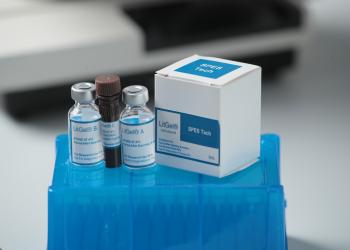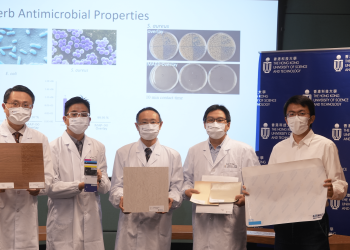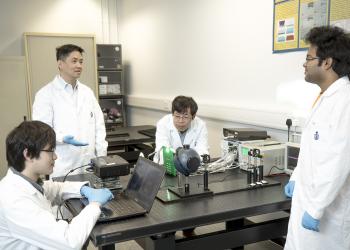News & Stories
2022

News
Hong Kong's First In-depth Fintech Development Study Points Way Forward in Strategies, Innovation and Talent Building
With fintech being a key part of Hong Kong’s drive to stay competitive as a financial center, the School of Business and Management of The Hong Kong University of Science and Technology (HKUST Business School) completed an in-depth research study pointing way forward for Hong Kong’s development into a leading global fintech hub. Taking references from the experience of major fintech hubs in the world, the study outlines ten opportunities that Hong Kong should leverage to enhance its fintech capabilities. Recommendations pertaining to high-level strategies include setting up a fintech ecosystem committee and positioning Hong Kong as a regional fintech sandbox.
News
Impact Series: A Quantum Leap into the Future
What is your first thought when you hear “quantum”? Inexplicable laws of nature? A technology for pioneering superfast computers? While quantum technology probably sounds very remote for non-scientists, many experts believe the field will eventually revolutionize our lives by enabling us to make smarter decisions in many different areas.

News
Impact Series: Hydrogels: Tomorrow’s Biomedical Solutions Today
Did you know that the hydrogels found in the contact lenses and cosmetics that many of us use every day are also crucial for the successful regeneration of our bodies’ vital internal organs? For many years, scientists have been meticulously studying the regrowing and repairing of damaged cells, organs, and tissues. A key breakthrough came when researchers established that the high water content of hydrogel polymer network structures’ make them useful for regenerative medicine.

News
What Is the Connection for President SHYY, Ingenuity and Leonardo Da Vinci?
The article is authored by CHEN Jay Chung, Professor emeritus of Department of Mechanical and Aerospace Engineering.
Recently, I had an opportunity to visit JPL (Jet Propulsion Laboratory) and listened to a talk by the scientists and engineers. They designed the cute little robotic helicopter, Ingenuity, which was brought to the Mars surface by the Perseverance rover spacecraft. Ingenuity successfully completed the first powered controlled extraterrestrial flight by a rotary-wing aircraft. My visit was a delightful reminiscence during the ever-glooming pandemic.












